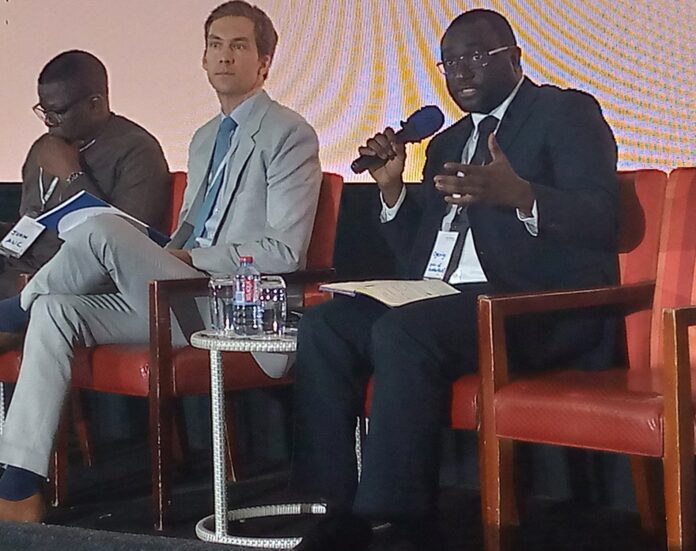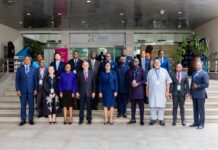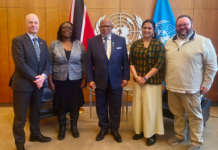By Lilian Museka
Accra, Ghana: Africa is booming in business and with the growing population and markets, opportunities are presenting themselves on the continent. Despite the rising inflation and insecurity challenges, the business has continuously grown with the most available natural resources.
According to World Bank Economic growth in Sub-Saharan Africa (SSA) is estimated at 4 percent in 2021, up from a contraction in economic activity of 2 percent in 2020. This has opened the continent to professionals and big multinational companies with top global companies claiming a stake.
However, on the side, business opportunities have presented a very challenging factor of human rights violations perpetrated by these entrepreneurs. Human rights issues have always been a matter of specific states but with such agreements as the Africa Free Trade Agreement Areas that have opened the continent up, the collective and legislative consciousness has shifted to the continental level.
Business and human rights have now become a corporate responsibility and with the introduction of the United Nations Guiding Principles (UNGP) on Business and Human Rights in 2011, duty bearers have a responsibility to protect human rights, and corporate responsibility to respect human rights and provide access to remedy.
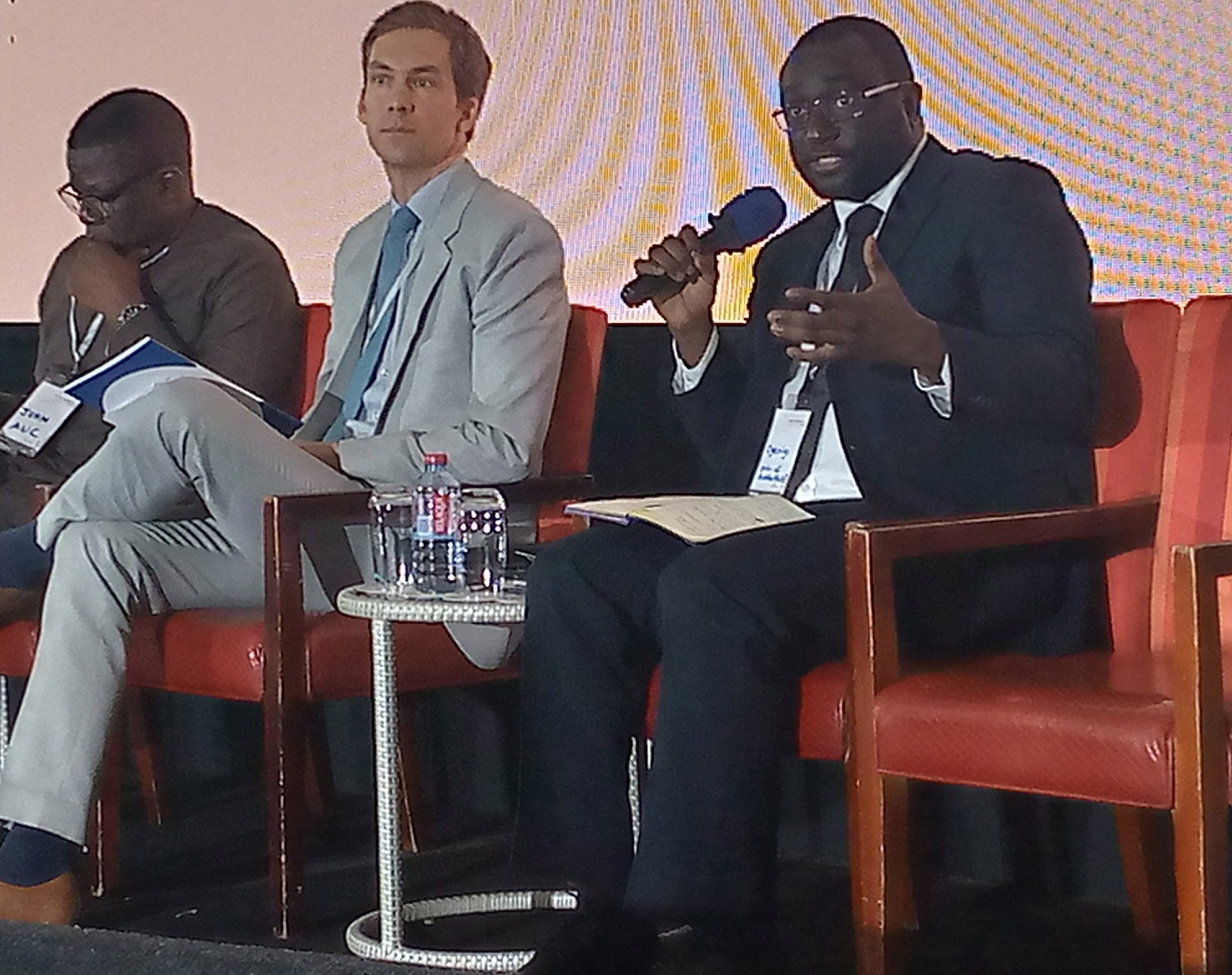
Africa Union has since built on the principles to develop a policy designed to hold companies to account by establishing guidelines on how to conduct business on the continent and safeguard human rights referred to as AU Draft Policy Framework on Business and Human Rights (AU BHR).
The policy is expected to be a major step forward to help African countries deal with major rights issues including land grabbing, environmental pollution, violation of labour rights, and employee safety, among others.
During an engagement in a programme for African journalists from various countries, organized by Friedrich Ebert Stiftung, who are attending the African Union Forum on Business and Human Rights to being held in Accra Ghana, it was evident that the continent suffers human rights challenges ranging from discrimination, labour related, environmental pollution and violence among others.
In his presentation on the state of Business and Human Rights in Africa, Dr. Oyeniyi Abe, a UK-based consultant, senior lecturer, and expert on business and human rights noted that the opportunities presented through the global world have had consequences on global development which has resulted in human rights violations mostly in Africa and Latin America.
Dr. Oyeniyi noted that the violations had reached an alarming stage and needed quick intervention adding that there was a need for policy frameworks to integrate human rights into business practices at the regional level.
“To have sustained growth and development at both country and regional levels, there is a need to include clauses addressing human rights violations; African countries developing National Action Plans on business and human rights are in the right direction,” he added.
He regretted that Africa is always quick to ratify internal treaties and still lags behind on implementation. Similarly, heads of state from the continent will take time to ratify treaties at the regional levels and urge them to focus on what touches on the continent.
Citing such treaties as The Malabo Protocol which provides for the inclusion of criminal jurisdiction within the remit of the proposed African Court of Justice and Human Rights (ACJHR) and The Protocol to the African Charter on Human and Peoples’ Rights on the Rights of Women in Africa, better known as the Maputo Protocol, which have been ratified by most African Nations, he called for the need to implement them.
“Treaties are good but in reality, many are not being implemented thus allowing most multinational corporations to easily get away with human rights violations. There is a need for stronger policy frameworks that guide at continental level implementation to compel international companies to adhere to human rights,” said Dr. Oyeniyi.
He cited corruption, illicit financial flows, and issues of mistrust as driving challenges among African states and called on collaborative efforts and commitment in the discussions on business and human rights.
Dr. Oyeniyi has conducted a study on the state of Business and Human Rights in Africa which will officially be launched at the forum on Business and Human Rights in Africa.
In her presentation on Business Activities and Human Rights: the importance for corporate Accountability, Dr. Hibist Kassa, a consultant, and human rights activist noted that many multinational companies do not adhere to human rights and take advantage of the most vulnerable groups like women and children to make extreme profits.
“Communities do not have resources to hold these companies accountable for violations of human rights. A code of conduct and due diligence must be demanded from these companies before they start operations and this must be led by our state actors,” she said.
Making reference to a case where striking miners in South Africa were killed by security personnel in 2012 for demanding a wage increase, she proposed that state actors must strengthen their laws to protect labourers from violations of human rights adding that, “This process to protect labourers should not be left to politicians but a multisectoral approach be taken.
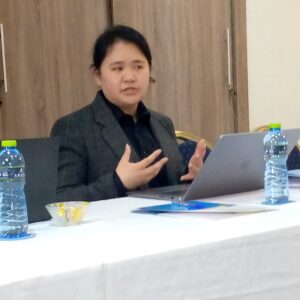
Also speaking at the journalists’ forum, Pichamon Yeophantong, the vice chairperson, of the UN Working Group on Business and Human Rights mentioned that one of the challenges they face is how to regulate medium and small enterprises as most lack understanding of human rights violations, despite them being the backbones of the economy around the world.
She however called on state duty bearers to undertake capacity building for SMEs to ensure they comply with existing mechanisms on human rights.“It is important that African leaders take lead in addressing business and human rights challenges to significantly push for the agenda.
The African journalist’s programme consists of reporters from Kenya, Uganda, Tanzania, Egypt, South Africa, Senegal, Nigeria, and Ghana.

